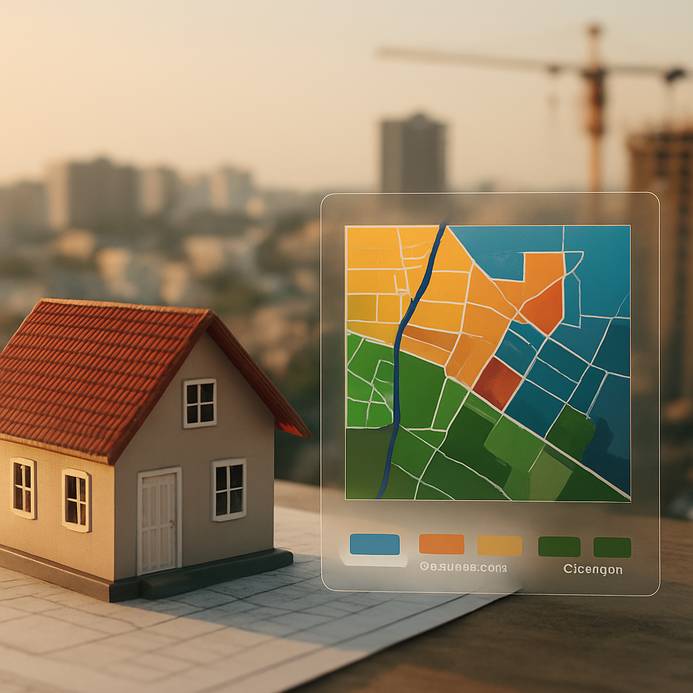RERA Project Search Made Simple: A Step-by-Step Guide for Homebuyers
The Indian real estate market, for all its potential, was long plagued by a lack of transparency and accountability. Delays, hidden costs, and unfair contracts left homebuyers feeling frustrated and vulnerable. In a landmark move to address these concerns, the Real Estate (Regulation and Development) Act, or RERA, was introduced in 2016. This legislation has significantly reshaped the landscape, empowering homebuyers and fostering a more secure and trustworthy environment for real estate transactions. Read this blog for a basic guide on RERA project search.
Introduction to RERA: Empowering Homebuyers
Imagine buying your dream home, only to discover later that the project is delayed indefinitely, or worse, shelved altogether. Sounds like a nightmare, right? This is exactly the scenario RERA was designed to prevent. It acts as a regulatory body, ensuring transparency and accountability in the real estate sector. By bringing both developers and buyers under its ambit, RERA empowers you, the homebuyer, with the information and rights you need to make informed decisions.
Unveil the 50-50 payment plan
How to Check RERA Registered Projects in Hyderabad
Every state in India has a dedicated RERA website. For Hyderabad, head to the Telangana RERA website (https://rera.telangana.gov.in/). On the homepage, navigate to the “Project Details” section and select “Search Project” from the dropdown menu. A new page will appear with search filters. You can refine your search by entering details like – District Name, Taluk Name (revenue subdivision), Project Type (residential, commercial, etc.), Area or Village where the project is located. Once you’ve entered the desired criteria, click “Search” to view a list of matching RERA-registered projects in Hyderabad. Here are the snippets (home page, search page, and search results) to assist you with your search, with an example of the project certificate.
Advanced Search –
This will typically require you to enter details like the project name, developer name, or location. Many RERA websites offer filters to narrow down your search. You can specify area, property type (apartment, villa, etc.), and budget range. To leverage it for your project search, identify your needs as follows.
- Location: Where do you see yourself living? Consider factors like proximity to workplace, schools, healthcare facilities, and your desired lifestyle.
- Budget: Factor in the property cost, registration charges, stamp duty, and potential maintenance costs.
- Property Type: Apartment, villa, plot? Consider your family size, lifestyle preferences, and long-term needs.
Key Information to Look for in RERA Registered Project Details
Land Details –
- Land Title: Ascertain the type of land title (freehold, leasehold) and any encumbrances on the property.
- Land Approvals: Ensure the project has obtained all necessary approvals from relevant authorities (e.g., building permits, environmental clearances).
Project Plan and Specifications –
- Basic Details: This includes the project name and location, developer and promoter information, stage of construction (ongoing, completed, etc.) and amenities offered.
- Project Registration and Plan: Every RERA-registered project has a unique registration number. This signifies the project’s legitimacy and ensures the developer adheres to RERA regulations. Review the layout of the project, including amenities, open spaces, and building configurations and footprints.
- Apartment Specifications: Scrutinize the details of your specific apartment type, including carpet area, super built-up area, and the amenities.
- Project Complaints: Check if any complaints have been registered against the developer or project with RERA.
Project Timeline –
- Phase-wise Completion Schedule: Understand the expected completion date for each phase of the project, including your specific apartment. RERA mandates developers to adhere to this schedule or face penalties.
- Registration Date and Validity: Be aware of the project’s registration date and its validity period.
Financial Details –
- Payment Schedule: Review the payment plan, including the stage-wise payment structure, down payment, possession payment, and any penalties for delays.
- Escrow Account Details: Verify that the developer is using an escrow account to manage project funds securely.
Making Informed Decisions with RERA Project Search
Additional information/efforts for now, that can save you from worries later –
- Reputation of Developer: Research the developer’s track record, past projects, and customer reviews.
- Financial Strength: Evaluate the developer’s financial stability to ensure project completion on time.
- Legal Verification: Consult a lawyer to verify legal documents like approvals and land ownership.
- Site Visit: Schedule a site visit as per your convenience. This allows you to get a feel for the surrounding area, noise levels, and accessibility. You get to inspect the quality of materials and workmanship used and ask questions about amenities, maintenance charges, and possession timelines.
Developers are required to deposit 70% of the collected funds from buyers into a separate escrow account. This ensures the funds are utilized solely for project completion, protecting buyers from financial mismanagement.
In case of disputes with the developer, RERA provides a streamlined mechanism for faster resolution. A tiered system for addressing grievances exists. Buyers can first approach the developer, followed by the RERA authority, and finally, the Real Estate Appellate Tribunal (RERA-AT).
Conclusion
RERA ensures all crucial project details are readily available, allowing you to compare projects objectively. With verified project registrations and mandated completion timelines, RERA significantly reduces the risk of delays or fraudulent practices. Having access to sanctioned plans and payment schedules strengthens your position when negotiating with developers. It’s important to note that RERA applicability may vary depending on project size and state regulations. Real estate projects are subject to change. Periodically revisit the RERA website or subscribe to project updates to stay informed about any modifications or new offerings.
FAQs
Yes, all ongoing and new residential projects exceeding a specific area threshold as defined by RERA Telangana must be registered.
It’s advisable to exercise caution. While some smaller projects might be exempt, unregistered projects lack the benefits of RERA’s regulations and pose a higher risk.
The availability of such filters might vary depending on the state RERA website’s functionalities. It’s always best to explore the search options offered by the specific website.
The required documents typically include a copy of the sale agreement, payment receipts, and any relevant communication with the developer.
The fee structure may vary by state. It’s recommended to consult the official RERA website for specific details.
No, searching for RERA-registered projects on the Telangana RERA website is entirely free.
Yes, the RERA Telangana website allows searching for registered agents using a similar process as for projects.
RERA mandates developers to compensate buyers for delayed possession as per defined norms.













